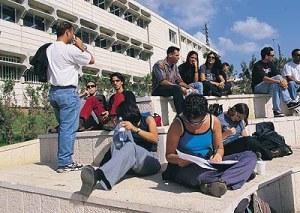After Ariel...
The model for the Galilee is of a multi-campus university based on the existing colleges in the north: Tel Hai, Kinneret, Jezreel, Safed, the Western Galilee and Braude, but in 2006 the Higher Education Council decide that until 2011 there was no academic planning need for establishing additional universities in Israel.
A year ago Silvan Shalom, the minister for the development of the Negev and Galilee, recalled the decision and said that “the establishment of a university is important and essential and will bring about a change like the one brought about in the south by Ben-Gurion University of the Negev.”
The planned university, according to Shalom, would employ up to 10,000 people. He also said that 1.25 million people live in the northern region but there is no university there from which they can benefit. By comparison, 1.25 million people live in the Tel Aviv area and in the southern region there are 893,000 inhabitants, and both places have significant universities.
The Planning and Budgeting Committee of the Higher Education Council, headed by Prof. Emanuel Trajtenberg, opposes the recognition of Ariel College as a university. According to Trajtenberg, “The very question of whether the college in Ariel is worthy of recognition as a university, when asked without reference to the broader context − planning, economics and the like − is extremely problematic and in the best case reflects nostalgia for an earlier era, which is long gone. In the worse case this is a conscious and sharp deviation from basic principles of egalitarianism and fairness. It is untenable that such a fundamental question be discussed and decided by a body responsible for only one general institution of higher education (and two teachers’ colleges), out of 67 institutions, in which there are only 3 percent of the total number of students.”
Sa’ar dismissed Trajtenberg’s remarks on Wednesday, and in advance of a meeting of the Judea and Samaria Higher Education Council wrote a letter to its members in which he said Trajtenberg is the one who has overstepped his authority. He also wrote: “I see fit to reject charges regarding the government’s involvement in decisions relating to the higher education system.”
By Talila Nesher and Eli Ashkenazi

